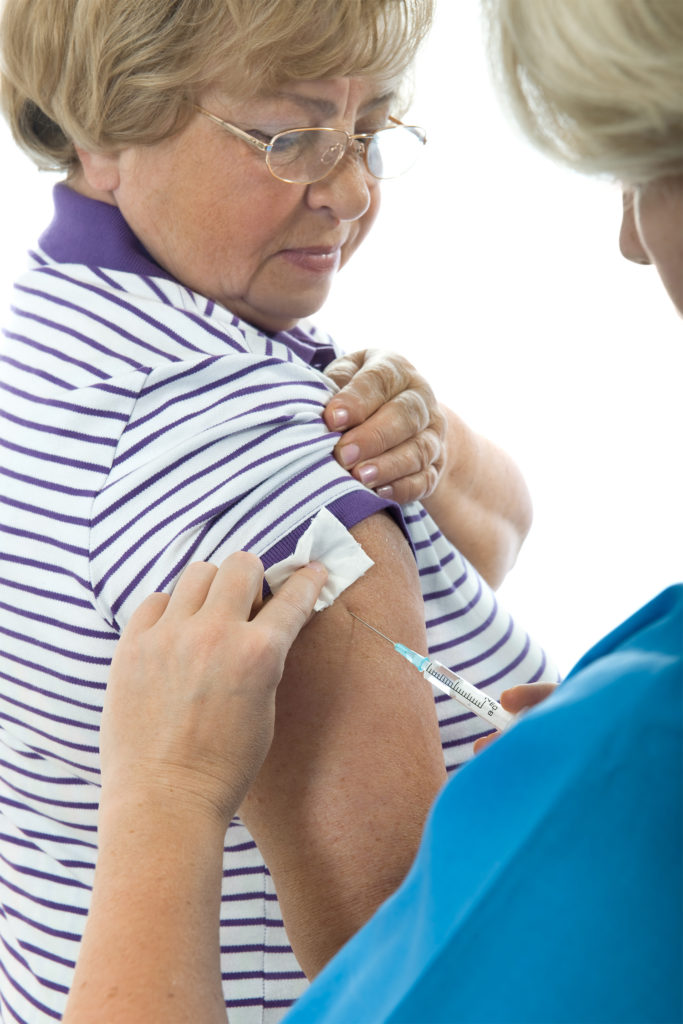Our Favorite Influenza Q & A
Why should people get vaccinated against the flu?
Influenza is a serious disease that can lead to hospitalization and sometimes even death, especially for seniors and people with chronic conditions. Symptoms of influenza usually appear 1-4 days after exposure. Persons are most contagious during the 24 hours before symptoms appear. People may be contagious for up to 5 -7 days after getting sick.
Who should get vaccinated this season?
Since 2010, the CDC has recommended that everyone 6 months of age and older should get a flu vaccine every season. Vaccination is particularly important for people who are at high risk of serious complications from influenza. Some people cannot be vaccinated. Talk to your doctor if you are allergic to eggs or if you have had the Guillain-Barre Syndrome, a severe paralyzing illness.
When should I get vaccinated?
After vaccination, it takes two weeks to develop antibodies that provide protection. So vaccination should begin soon after the vaccine becomes available, by the end of October and through January or later.
Can I get seasonal flu even though I got a flu vaccine this year?
Yes, possibly. This depends on your age and health, and if the viruses protected by the vaccine are a “match” to the viruses circulating in the community. The better the match, the less likely you will get the flu.
Can the flu vaccine give me the flu?
No, a flu vaccine cannot cause flu illness. Flu vaccines are made with inactivated flu viruses or no flu viruses at all. There may be mild, short-lived side effects from the flu vaccine:
- Soreness, redness or swelling at the injection site
- Fever
- Aches
 If you get the flu, it may be that you were already infected with the flu virus. Flu symptoms do not start right away but may take several days to show up.
If you get the flu, it may be that you were already infected with the flu virus. Flu symptoms do not start right away but may take several days to show up.
August is “Immunization Awareness” Month
Talk with your healthcare professional to make sure you are up-to-date with vaccines recommended for you. If you are 60 years or older you should get a shingles vaccine to protect against getting this painful rash and avoid the long-term pain that may come with it.
Other vaccines you may need include:
– – – Flu vaccine annually
– – – Pneumococcal vaccines to protect against serious pneumococcal diseases
– – – Tdap vaccine to protect against tetanus, diphtheria and pertussis (whooping cough)
For more information on vaccines go to www.cdc.gov/vaccines/adults







